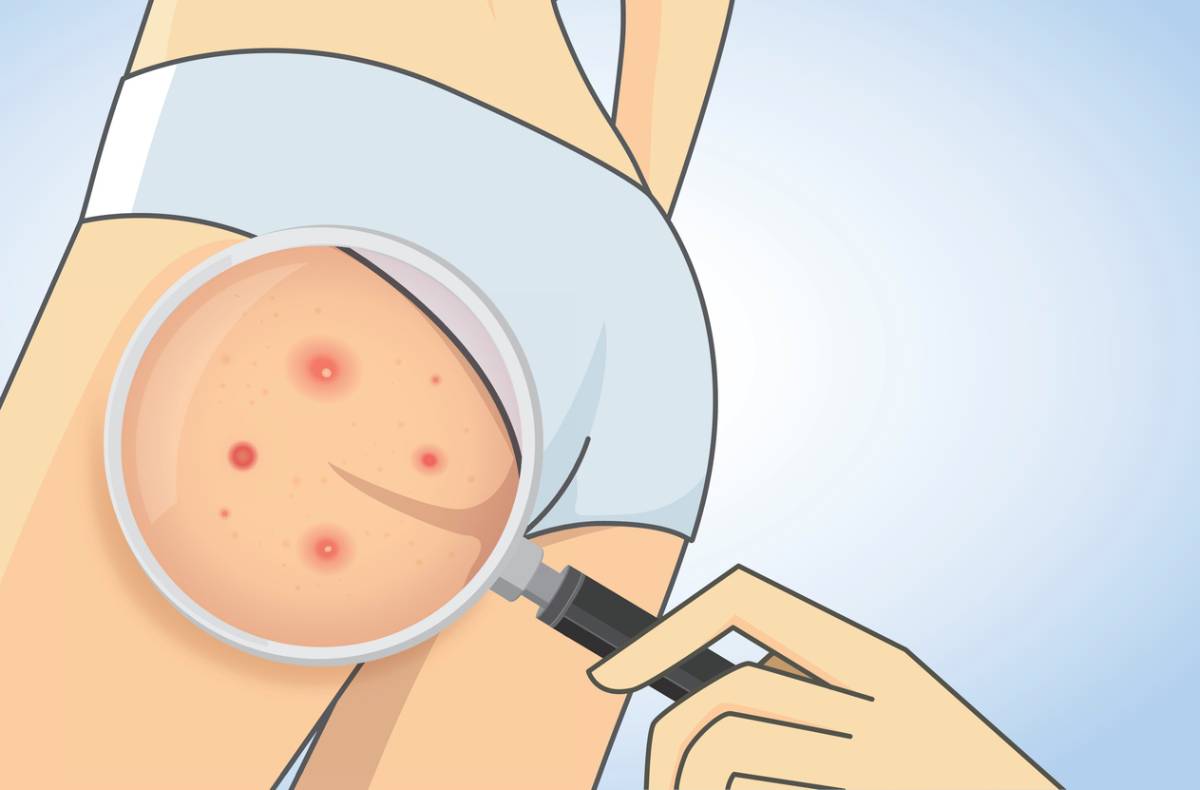How to Get Rid of Butt Acne Scars
A common concern that is rarely talked about is butt acne. Of course, the breakouts themselves are quite an annoyance, but the lingering scars they can leave behind are sometimes even more frustrating. Regardless of whether you have hyperpigmentation, dark spots, or textural scarring, there are luckily a variety of approaches that can help! You may be wondering what the options are and how to get rid of your butt acne scars. Thankfully, either at-home remedies or professional acne scar removal treatments can restore your skin with time.
Understand What Causes Butt Acne Scars
Clogged hair follicles, friction from tight clothing, or irritation from sweat can lead to butt acne. These causes often lead to folliculitis, or an inflammation of hair follicles, rather than typical acne. This inflammation can result in scarring, especially if they are picked at or irritated. Scars can appear as:
- Post-inflammatory hyperpigmentation (discoloration or dark marks)
- Atrophic scars (indents or pitted marks)
- Hypertrophic or keloid scars (raised, thicker tissue)
Knowing the kinds of scars you are dealing with will guide you in deciding the most appropriate treatment for you.
How to Get Rid of Butt Acne Scars
Let’s explore some tips and tricks for those pesky scars.
At-Home Remedies
For newer or milder scars, over-the-counter treatments can help fade discoloration and smooth the skin. Here are some options:
- Exfoliating Acids: AHAs and BHAs, such as glycolic or salicylic acid, can encourage cell turnover and enhance skin tone.
- Retinoids: retinol and prescription-strength retinoids, like tretinoin, stimulate collagen production and reduce pigmentation and indentations.
- Vitamin C: a powerful antioxidant that brightens dark spots.
- Niacinamide: This ingredient reduces hyperpigmentation and redness. It is also gentle enough to use regularly.
- Sunscreen: UV exposure can darken scars and slow the healing process. Be sure to use SPF on uncovered areas.
Consistency is vital. Results may take 2-3 regular months of use to see, and they may vary depending on skin tone, age, and severity of scars. During this time, it is important to keep your skin moisturized to maintain its elasticity and heal it better.
If you have sensitive skin, it is wise to introduce one new product at a time into your skincare routine to avoid irritation.
In-Office Professional Treatments
For deeper scars, there are professional treatments that can give more dramatic results. Here are a few:
- Chemical Peels: Stronger than over-the-counter versions, these can remove dead skin layers and address pigmentation.
- Microneedling: Through controlled micro-injuries, this procedure can increase collagen production.
- Laser Treatments: Fractional CO2 and IPL lasers encourage smoother skin and battle pigmentation.
- Dermabrasion and Microdermabrasion: Regeneration is encouraged by these exfoliating techniques because they remove damaged skin layers.
- Topical Prescriptions: You may be prescribed hydroquinone or tretinoin by a dermatologist to fade your dark spots faster.
Treatments made require more than one session or downtime, but many individuals report that the results are worth it. Your dermatologist may even recommend combining different methods for optimal results.
Preventing Future Scars
Like most things, prevention is a huge part of managing butt acne scars. Here are some actionable steps for you to take:
- Wear breathable fabric like cotton to prevent irritation.
- Change out of sweaty clothes as soon as possible after you work out.
- Avoid clogging your pores by using gentle and noncomedogenic cleansers.
- Avoid harsh scrubbing and picking because this can damage and inflame your skin further.
- Moisturize regularly to maintain a healthy skin barrier.
You can also consider using a body wash with ingredients like benzoyl peroxide or salicylic acid to keep your breakouts at bay. Regular exfoliation lowers the risk of follicle buildup and maintains skin circulation.
When to See a Professional
If the scars are not fading or you are unsure of the type you are dealing with, it is important to consult a cosmetic dermatologist. They can identify the type of scarring and come up with a custom plan for you with the most effective treatments. In many cases, having a professional intervene earlier can lead to faster and better outcomes than just turning to home remedies. Even if your scars have been plaguing you for many years, there are still options to manage them. Stop by our clinic for a consultation today!

Leave a Reply